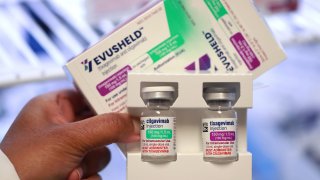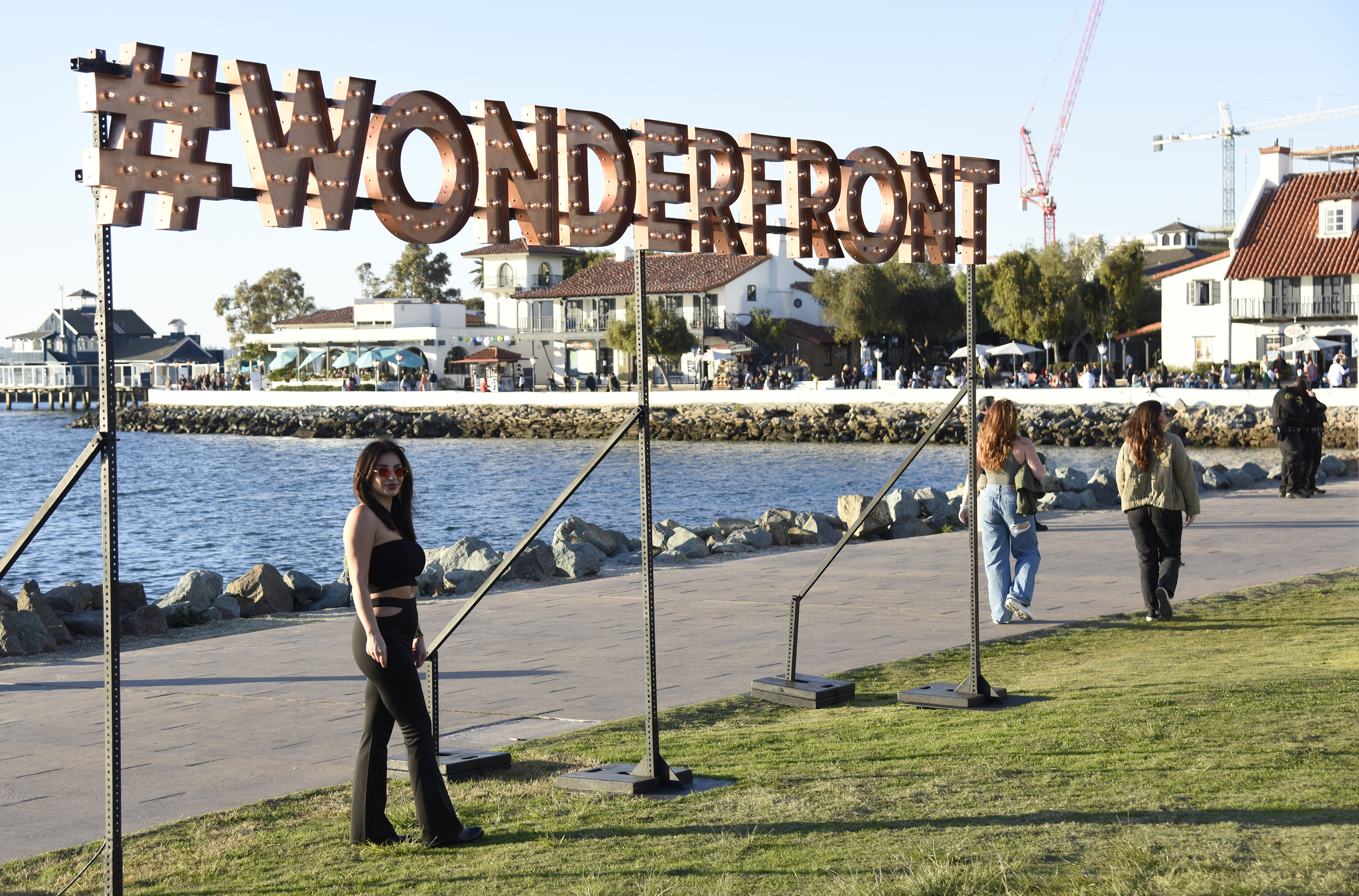
Some of San Diego's most immunocompromised people are seeing new hope in a world with COVID-19 after being treated with an antibody drug approved under emergency use authorization for those who can't get adequate protection from the COVID-19 vaccine.
UC San Diego Health said they began distributing AstraZeneca's antibody cocktail, Evusheld, to severely immunocompromised patients in early January and is currently expanding access as supply increases.
Other health care facilities in San Diego County are also using the injectable monoclonal antibody treatment, which has been approved by the U.S. Food and Drug Administration for emergency use to prevent COVID-19 in people with moderate to severely compromised immune systems due to medical conditions, or to those who are receiving immunosuppressive medications or treatments.
Randi Shanken, 70, became one of the first patients in San Diego County to receive the treatment, which is a cocktail of tixagevimab and cilgavimab given in two doses on the same day.
Get San Diego local news, weather forecasts, sports and lifestyle stories to your inbox. Sign up for NBC San Diego newsletters.
Shanken was diagnosed with leukemia before the pandemic and knew that she was exceptionally susceptible to serious symptoms of COVID-19 if she caught the disease while undergoing cancer treatment.
“I went into strict lockdown. I was considered a high-risk patient, and I knew I was susceptible to a severe case of COVID-19 while undergoing cancer treatment because my immune system was not as strong,” Shanken said in a written release. “I am an avid tennis player, but I stopped playing. I stopped seeing my friends and family. My husband and I started hibernating together at home.”
She got the COVID-19 vaccine and the booster shot and saw "a bright light at the end of the tunnel." But, her body did not develop antibodies against the virus.
Local
“It was very disappointing and depressing. I still had no protection and needed to continue isolating from the world,” Shanken said.
Get updates on what's happening in San Diego to your inbox. Sign up for our News Headlines newsletter.
Shanken became a candidate for UC San Diego Health's Evusheld treatment and has since received both doses of the cocktail. After two years of limiting contact with family, the treatment is allowing her to help plan and attend her daughter's wedding. She is also in remission from cancer.
“I was very emotional when I received the treatment. I could now participate in my daughter’s wedding shower," she said. "I helped her assemble her invitations. I went shopping for my dress. I can attend her outdoor wedding without fear."
So far, at least 350 immunocompromised individuals have been treated with the drug at UCSD Health centers alone, Dr. Shira Abeles said.
According to a large placebo-controlled clinical trial, the cocktail is about 83% effective at preventing symptomatic disease. Immunity from the treatment can last up to six months and longer in some cases, Abeles said.
The injectable monoclonal antibody treatment, which has been approved for patients 12 and older, is meant as a preventative measure and is not a treatment for those who have already been diagnosed with COVID-19. The protection is known as pre-exposure prophylaxis, or PrEP.
Lucy Horton, an infectious disease specialist at the University of California, San Diego, said that Evusheld as PrEP can provide an additional layer of protection for the vaccinated and vulnerable but that it “should not be viewed as an alternative to or replacement of vaccine.”
PrEP candidates must test negative for the coronavirus. They also must not have had known recent exposures to infected people.
The first patient to receive Evusheld at UC San Diego Health was a kidney transplant patient. According to UCSD, transplant patients are more susceptible to COVID-19 because they cannot receive the vaccine for three months after their surgery. They can, however, receive Evusheld.
UC San Diego Health patients who believe they qualify for the treatment -- those who are moderate to severely immunocompromised or who could not get vaccinated due to severe side effects -- should contact their physician to discuss eligibility. The treatment is given by appointment only at the La Jolla drive-up site, Monday through Saturday from 9 a.m. to 7 p.m.



